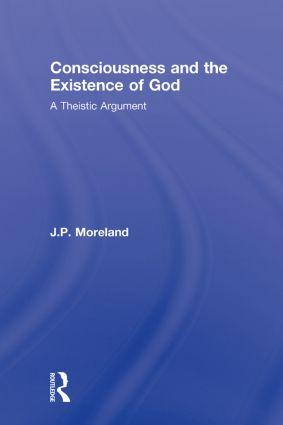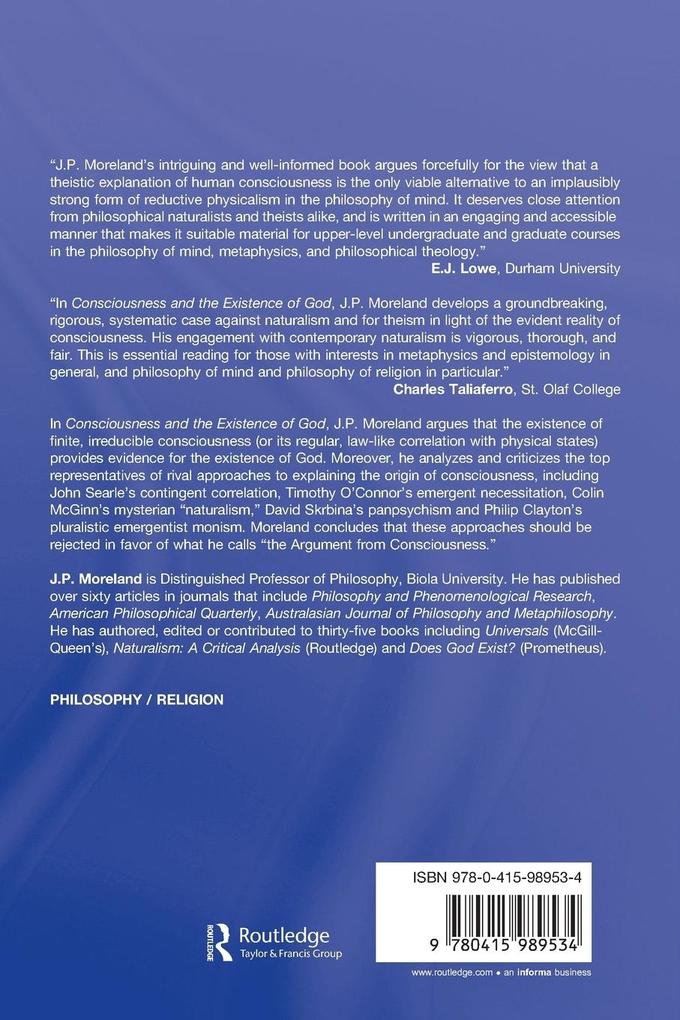In Consciousness and the Existence of God, JP Moreland argues that the existence of finite, irreducible consciousness (or its regular, law-like correlation with physical states) provides evidence for the existence of God. Considering Searle's contingent correlation, O'Connor's emergent necessitation, and Nagel's mysterian "naturalism," Moreland concludes that these versions of naturalism should be rejected in favor of what he calls "the Argument from Consciousness."
In Consciousness and the Existence of God, J. P. Moreland argues that the existence of finite, irreducible consciousness (or its regular, law-like correlation with physical states) provides evidence for the existence of God. Moreover, he analyzes and criticizes the top representative of rival approaches to explaining the origin of consciousness, including John Searle's contingent correlation, Timothy O'Connor's emergent necessitation, Colin McGinn's mysterian "naturalism," David Skrbina's panpsychism and Philip Clayton's pluralistic emergentist monism. Moreland concludes that these approaches should be rejected in favor of what he calls "the Argument from Consciousness."
Inhaltsverzeichnis
Chapter One: The Epistemic Backdrop for Locating Consciousness in a Naturalist Ontology
Chapter Two: The Argument from Consciousness
Chapter Three: John Searle and Contingent Correlation
Chapter Four: Timothy O'Connor and Emergent Necessitation
Chapter Five: Colin McGinn and Mysterian "Naturalism"
Chapter Six: David Skrbina and Panpsychism
Chapter Seven: Philip Clayton and Pluralistic Emergentist Monism
Chapter Eight: Science and Strong Physicalism
Chapter Nine: AC, Dualism and the Fear of God













